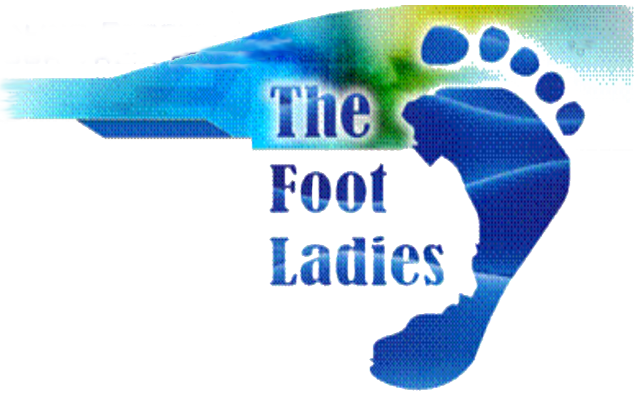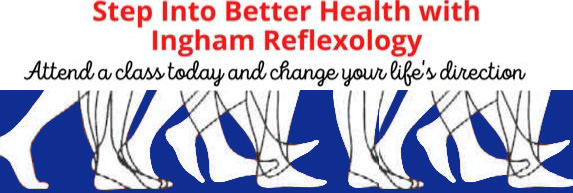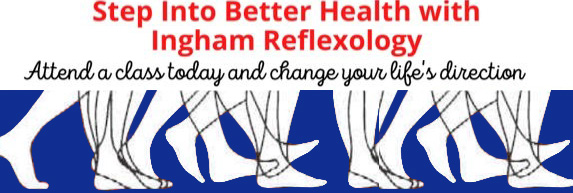Research Results from around the Globe: Reflexology Aids Patient Care
Research Results from around the Globe:
Reflexology Aids Patient Care
Reflexology Aids Patient Care
Research Results from
around the Globe:
Reflexology Aids
Patient Care
around the Globe:
Reflexology Aids
Patient Care
Positive results from the Michigan State University (MSU) study, conducted within the school's nursingdepartment, bring focus to positive results from reflexology research by nurses around the globe. The MSU research adds to 65 previously reported studies by nurses with 24 about cancer care. The amount of funding-$3.5 million-and the number of participants-385- demonstrates increasing interest in reflexology research in America. In addition, the inclusion in the research of reflexology provided by lay people or caregivers, pioneered by reflexologist and nursing professor Dr. Nancy Stephenson ofEastern North Carolina StateUniversity, demonstrates the viable inclusion of reflexology in efficacious and cost-effective patient care. As with the MSU results, positive results from recent reflexology research by midwives and nurses in Iran (dysmenorrhea and cesarean section) as well as an MD. D. in India (epilepsy) demonstrate the world wide potential for reflexology application in medical care.
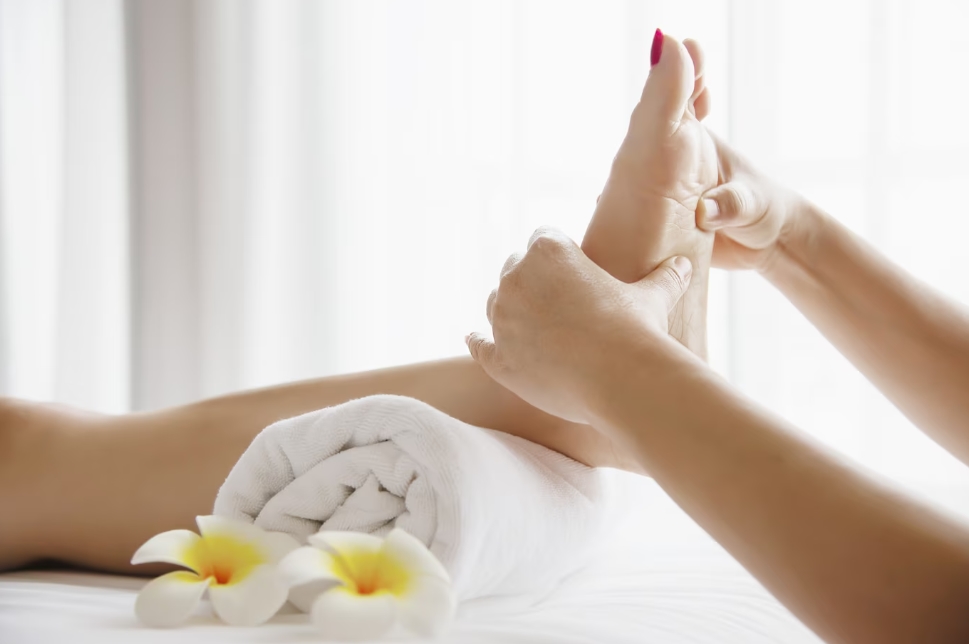
Comments in these studies note the universal solutions sought for patient problems: a natural solution to lessening pain (dysmenorrhea) avoiding complications of drugs; the benefits provided by reflexology of additional pain relief following surgery when medication alone does not meet patients' physical and psychological needs (cesarean section) and the challenge of treating intractable illness where medical measures do not fully resolve patient's symptoms (epilepsy). Research conducted by Geneva Association of Nurse Reflexologists (ACT) is anticipated, following
analysis of research, will shed further light on such use of reflexology as a solution to a problem not met by standard medical practice. Reflexology was applied to 900 patients in Intensive Care Units (ICU) at The ICU Surgical University Hospitals of Geneva to study its impact on the quality of
agitation experienced by post-surgical patients. "The assumption was that it is possible to prevent episodes of agitation and their consequences in acting on the patient's environment with the IR-afferents and methods of relaxation. The objective was to test using a prospective randomized
study (with control group) whether the introduction of relaxation methods (music, reflexology) and afferent could prevent episodes of agitation."
analysis of research, will shed further light on such use of reflexology as a solution to a problem not met by standard medical practice. Reflexology was applied to 900 patients in Intensive Care Units (ICU) at The ICU Surgical University Hospitals of Geneva to study its impact on the quality of
agitation experienced by post-surgical patients. "The assumption was that it is possible to prevent episodes of agitation and their consequences in acting on the patient's environment with the IR-afferents and methods of relaxation. The objective was to test using a prospective randomized
study (with control group) whether the introduction of relaxation methods (music, reflexology) and afferent could prevent episodes of agitation."
Positive results from the Michigan State University (MSU) study, conducted within the school's nursingdepartment, bring focus to positive results from reflexology research by nurses around the globe. The MSU research adds to 65 previously reported studies by nurses with 24 about cancer care. The amount of funding-$3.5 million-and the number of participants-385- demonstrates increasing interest in reflexology research in America. In addition, the inclusion in the research of reflexology provided by lay people or caregivers, pioneered by reflexologist and nursing professor Dr. Nancy Stephenson ofEastern North Carolina StateUniversity, demonstrates the viable inclusion of reflexology in efficacious and cost-effective patient care. As with the MSU results, positive results from recent reflexology research by midwives and nurses in Iran (dysmenorrhea and cesarean section) as well as an MD. D. in India (epilepsy) demonstrate the world wide potential for reflexology application in medical care.

Comments in these studies note the universal solutions sought for patient problems: a natural solution to lessening pain (dysmenorrhea) avoiding complications of drugs; the benefits provided by reflexology of additional pain relief following surgery when medication alone does not meet patients' physical and psychological needs (cesarean section) and the challenge of treating intractable illness where medical measures do not fully resolve patient's symptoms (epilepsy). Research conducted by Geneva Association of Nurse Reflexologists (ACT) is anticipated, following analysis of research, will shed further light on such use of reflexology as a solution to a problem not met by standard medical practice. Reflexology was applied to 900 patients in Intensive Care Units (ICU) at The ICU Surgical University Hospitals of Geneva to study its impact on the quality of
agitation experienced by post-surgical patients. "The assumption was that it is possible to prevent episodes of agitation and their consequences in acting on the patient's environment with the IR-afferents and methods of relaxation. The objective was to test using a prospective randomized study (with control group) whether the introduction of relaxation methods (music, reflexology) and afferent could prevent episodes of agitation."
agitation experienced by post-surgical patients. "The assumption was that it is possible to prevent episodes of agitation and their consequences in acting on the patient's environment with the IR-afferents and methods of relaxation. The objective was to test using a prospective randomized study (with control group) whether the introduction of relaxation methods (music, reflexology) and afferent could prevent episodes of agitation."
Positive results from the Michigan State University (MSU) study, conducted within the school's nursingdepartment, bring focus to positive results from reflexology research by nurses around the globe. The MSU research adds to 65 previously reported studies by nurses with 24 about cancer care. The amount of funding-$3.5 million-and the number of participants-385- demonstrates increasing interest in reflexology research in America. In addition, the inclusion in the research of reflexology provided by lay people or caregivers, pioneered by reflexologist and nursing professor Dr. Nancy Stephenson ofEastern North Carolina StateUniversity, demonstrates the viable inclusion of reflexology in efficacious and cost-effective patient care. As with the MSU results, positive results from recent reflexology research by midwives and nurses in Iran (dysmenorrhea and cesarean section) as well as an MD. D. in India (epilepsy) demonstrate the world wide potential for reflexology application in medical care.

Comments in these studies note the universal solutions sought for patient problems: a natural solution to lessening pain (dysmenorrhea) avoiding complications of drugs; the benefits provided by reflexology of additional pain relief following surgery when medication alone does not meet patients' physical and psychological needs (cesarean section) and the challenge of treating intractable illness where medical measures do not fully resolve patient's symptoms (epilepsy). Research conducted by Geneva Association of Nurse Reflexologists (ACT) is anticipated, following analysis of research, will shed further light on such use of reflexology as a solution to a problem not met by standard medical practice. Reflexology was applied to 900 patients in Intensive Care Units (ICU) at The ICU Surgical University Hospitals of Geneva to study its impact on the quality of agitation experienced by post-surgical patients. "The assumption was that it is possible to prevent episodes of agitation and their consequences in acting on the patient's environment with the IR-afferents and methods of relaxation. The objective was to test using a prospective randomized
study (with control group) whether the introduction of relaxation methods (music, reflexology) and afferent could prevent episodes of agitation."
study (with control group) whether the introduction of relaxation methods (music, reflexology) and afferent could prevent episodes of agitation."
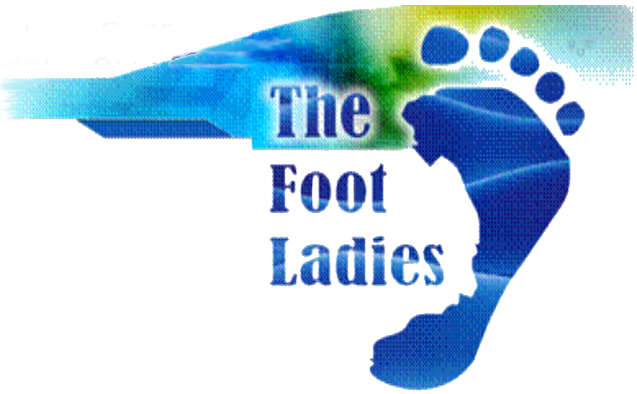
Since they first learned about Reflexology in the early 60's, mother-daughter team Muff and Bobbi Warren studied, practiced and taught Foot and Hand Reflexology worldwide.
The FootLadies,
Copyright 2022
All Rights Reserved.
San Diego, La Mesa, CA
619-723-5276
Bobbi@TheFootLadies.com

